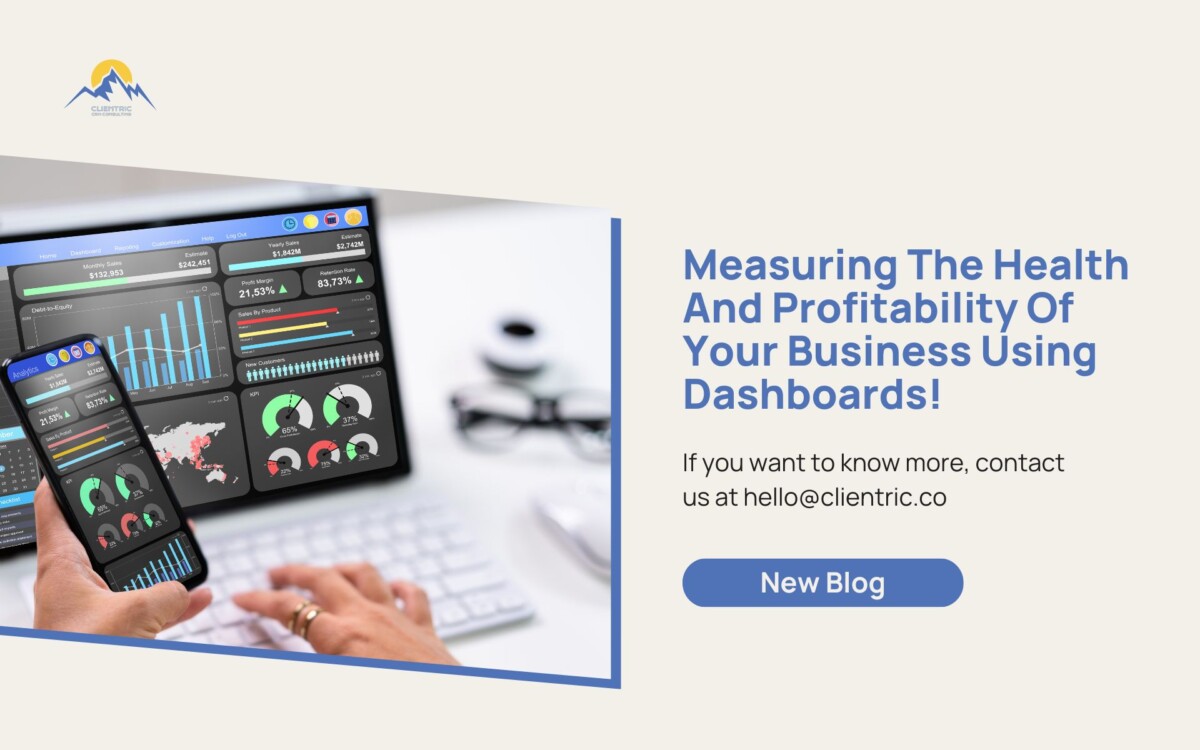The importance of analyzing the health of your business
Running a successful business is not as simple as setting up a shop and hoping things go well from then on. A lot more goes into it than is apparent to most people. A whole field of business management comes into play here. A part of this management is keeping tabs on how well the business is doing. This article gives an insight into the importance of analyzing the health of your business and how you can do it efficiently with the help of dashboards.
Understanding Business Health
A business’s health is characterized by how well it is performing and how many of its goals are being achieved. A good business is like a well-oiled and efficient machine. Just like a machine, a business has a lot of parts and segments that need to work together in harmony and without hindrances to acquire the required output. A business’s output, just like a machine’s, also depends on how well it has been designed.
Business methodology and organizational structure play a huge part in its output. Ideally, a business should have zero resources wasted and maximum output achieved from the input given to it. However, this is not the case with almost all the businesses we come across. So, knowing all the performance-contributing elements constitutes being educated on a business’s health. One cannot hope to get the most out of a business if its health is not known and actions are not being taken to remedy the discovered faults and imperfections.
Health Parameters and KPIs
When we say that a business’s health has to be analyzed, what are we talking about? The measurement of business health depends on several parameters. These parameters are related to all sections of the business, including leads, sales, marketing, revenue, customer relations, and costs.
The term KPI (Key Performance Indicator) is mentioned a lot in this regard. KPIs are the most important parameters or metrics that help in defining the ‘performance’ of a business, i.e., the business’s health.
Important Health Parameters
Properly defining the KPIs for a particular business is paramount. As every business varies in size, target market, nature of product or service offered, and goals, a single set of KPIs cannot suffice them all. Also, each KPI may have a different weight for different businesses, depending on how much and in what way that KPI affects the business outcome. Some commonly used KPIs that are relevant to most businesses are as follows:
Customer Acquisition Cost: It consists of all the costs incurred in converting a lead into a customer.
Customer lifetime value: This is the measure of how much revenue a particular client can generate for you over a period of time.
Sales target: It is a measure of actual revenue versus forecasted revenue.
Customer churn: The number of customers that did not return to buy from you again.
Return on Investment: ROI is how much your assets contribute to your company’s revenue.
One cannot limit the number of key performance indicators (KPIs) on a list.The important thing is to pick the ones that are ‘key’ to your business and formulate a proper health check and KPI analysis system to achieve your business goals.
How to Do Business Health Analysis
Regarding your business’s health, defining a good set of APIs can only take you so far. You must know how to assess those KPIs and which actions to take based on your assessment results. The success of using KPIs largely depends on how you do your analysis. False KPI measurements will lead to false actions, and that will move you farther away from your targets.
Doing this process manually is ill-advised, as it takes a lot of the company’s precious time and resources and is prone to errors. For proper business health assessment and KPI analysis, certain tools are widely used. These software tools prove to be much better at organizing information, calculating parameters, and extracting results.
Some businesses make use of Microsoft Excel, Google Sheets, or other similar software. Although these programs are widely available and anyone can easily use them, they do not provide pre-built templates for this particular application. You need to set up and define everything manually and enter all data manually, which makes updating information difficult. They also become too cluttered if the business size is anything but tiny.
Dashboards: What Are They, and How Can They Help?
We highly recommend building a purpose-built dashboard to avoid the discomfort of using generic software. Dashboards provide a system to organize all the relevant information logically. You can create separate sections for all the stages of your business process; you can create and organize different departments according to their roles; you can enter information on deals and transactions easily; you can have KPIs calculated and different parameters analyzed automatically; you can have predictions made based on past data; and much more.
Dashboards, in essence, provide a bird’s-eye view of all your business operations and a high-level understanding of everything that goes into and comes out of the business. Here are a few characteristics that contribute to making dashboards easy to monitor for business health.
Concise and Compact Information
One of the greatest benefits of dashboards for businesses is that they provide a compact and concise depiction of all relevant information in one place. You can filter the data according to your needs, analyze the whole business, a certain client or project, or study the performance of a particular department, all on one platform. This feature is very helpful in health assessment, as all the required information can be made available with a single click.
Synchronizing Data On Your Dashboards
A lot of these dashboards also provide the utility of connecting other business software for automatic synchronization of information. This saves a lot of time and effort and alleviates the chances of errors that come with manual data entry.
Financial Analysis For Your Business
Calculating the profitability of assets is a major part of business health assessment. Dashboards can automatically calculate various costs and revenues. You can find the costs incurred and funds generated by separate clients, marketing campaigns, strategies adopted, prospects targeted, regions explored, and resources used. This flexibility and ease of getting all this financial information is, in itself, a great asset.
Client Assessment
Dashboards provide a system for organizing all information regarding different clients. You can store and organize all the information you have about your customers. With all the data available on the clients, you can evaluate which clients are more beneficial for the company. You can evaluate their behavior and deal with them accordingly. You can also make predictions about what a future relationship can yield based on past data.
Business Goals
With an eye on all aspects of a business, one can evaluate whether it is going in the right direction and at the right pace towards its intended goals. Organizing and formulating the factors that contribute to goals comprehensively enables the prediction of outcomes at various levels, such as acquiring new customers, executing deals, generating revenue, acquiring assets, etc. And good predictions give us a good sense of where the business is going to be in the coming days.
Making the Right Choice About Dashboards
As explained earlier, dashboards bring a lot to the table in business management and contribute to its profitability. Using software tools like dashboards is imperative in modern times when the market is highly competitive. Businesses try to gain any edge they can over their competitors. Automating, synchronizing, and organizing all the data related to a business is how you can make sure that your business achieves its targets.
As each business works differently and has different dynamics, how they set up their dashboard and how they use it is also different. Tailor dashboards to a business’s operations and KPIs.If you are not sure about what decisions you should make while choosing or setting up a dashboard, you can always reach out to professionals and experts.
If you have further questions or are interested in working with us, please contact us anytime at hello@clientric.co, or you can visit our website www.clientric.co At Clientric, our goal is to help you decrease the chaos in your business so you can gain more control and focus on what really matters.



